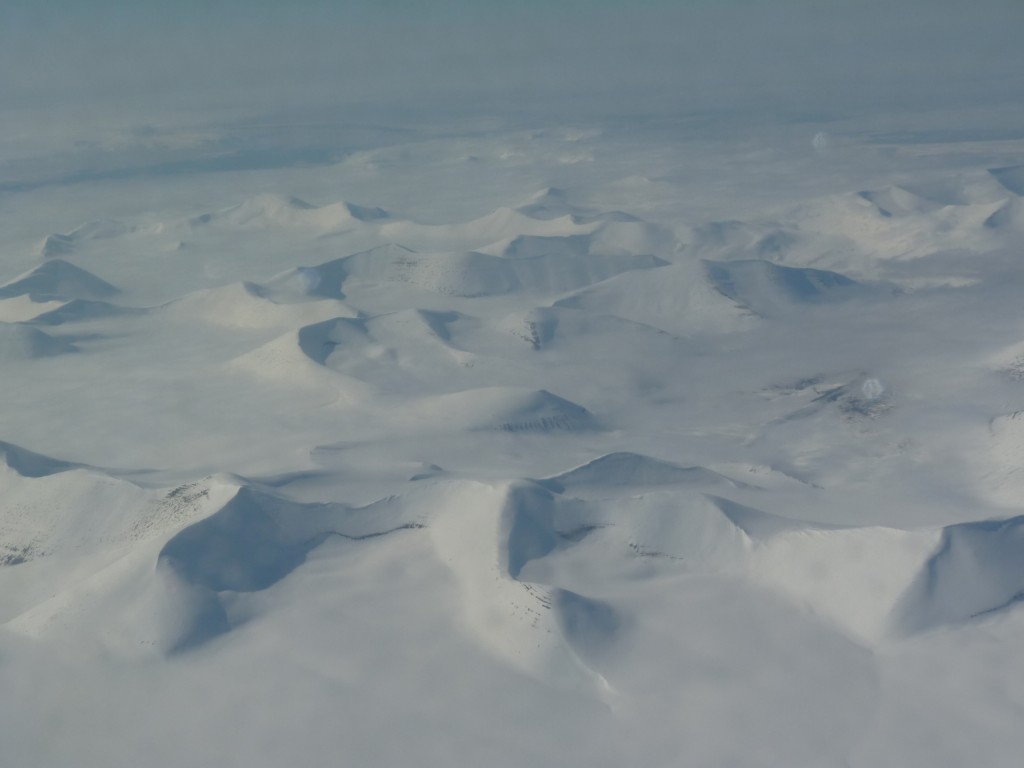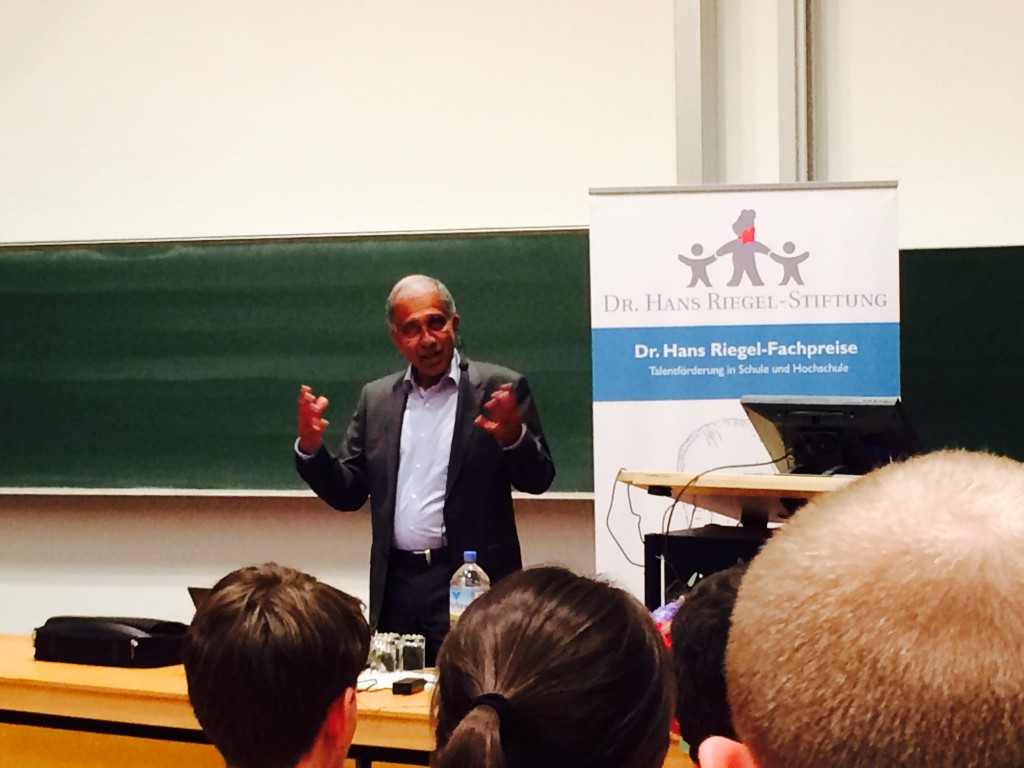Search Results for Tag: Deutscher Umweltpreis
Ice melt to motivate whizzkids?
And understanding that ice cores can tell us about 800,000 years of climate history tends to fascinate even the most unscientific of youngsters.
Not that the 160 young folk assembled recently in Bonn by the Hans-Riegel Foundation were lacking in scientific interest or talent.
The foundation, set up by the highly successful businessman who created HARIBO, (comes from HAnsRIegelBOnn, by the way) the “gummy bear” brand name, supports innovative educational projects with a view to encouraging talented young people to go into research. It awards prizes to school pupils in Germany and Austria for scientific projects.
Recently, 160 prizewinners were invited to a “Science Slam” in Bonn and a series of workshops and presentations – including a talk by renowned climate expert Mojib Latif. Mojib Latif is a professor for oceanology and climate dynamics at GEOMAR, the Helmholtz Centre for Ocean Research in Kiel, in northern Germany.
He has just been chosen as one of two winners of this year’s Deutscher Umweltpreis or German Environment Prize by the “Deutsche Bundesstiftung Umwelt”, one of Europe’s largest foundations. It’s the first time the award has been given to a climate scientist.
Latif, whose family background is Indian, is a well-known face on television. He has a talent for explaining complex climate phenomena in a way that ordinary people with no scientific background can grasp. As I listened to him addressing the young scientists, I could see how they were spellbound by his stories and anecdotes. And that makes it easier to digest the diagrams and figures that illustrate the workings of the global climate.
Latif holds his audience’s attention with a mixture of humour and examples from everyday life. He anticipates questions of the “skeptical” type, explaining the existence of natural trends and variations as well as human-made warming, and the wide range of scenarious covered by climate models.
When he turned to Greenland and to the Antarctic, I could see the fascination and curiosity in the eyes of the young audience.
The main message of this expert’s message was a mixture of concern at the rate of climate change and optimism that we have the technology to replace fossil fuels by renewables – and that the up-and-coming generation will use it to avert the worst.
Although he’s fairly certain we won’t be able to keep to the two-degree target, Latif says humankind just cannot be “so stupid” as to keep burning fossil fuels and heating up the atmosphere. If the applause of those representatives of the younger generation could be translated into positive action to combat climate change, his optimism may well be justified.
You can read what he told me in an interview after the encounter with Germany’s science whizzkids here:


















Feedback